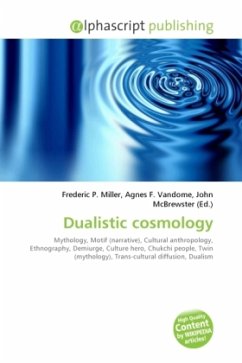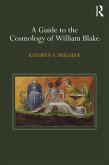Dualistic cosmology is a collective term. Many variant myths and creation motifs are so described in ethnographic and anthropological literature. These motifs conceive the world as being created, organized, or influenced by two demiurges, culture heroes, or other mythological beings, who either compete with each other or have a complementary function in creating, arranging or influencing the world.There is a huge diversity of such cosmologies. In a Chukchi example, the two beings do not compete, rather collaborate. They contribute to the creation in a coequal way. They cannot be contrasted as good versus evil. They are neither collateral nor consanguineous relatives. In many other instances the two beings are not of the same importance or power . Sometimes they can be contrasted as good versus evil.They may be often believed to be twins or at least brothers.Dualistic motifs in mythologies can be observed in all inhabited continents. Zolotaryov concludes that they cannot be explained by diffusion or borrowing, but are of convergent origin: they are related to a dualistic organization of society in some cultures, this social organization may have been ceased to exist, but mythology may preserve memories in more and more disguised ways.
Bitte wählen Sie Ihr Anliegen aus.
Rechnungen
Retourenschein anfordern
Bestellstatus
Storno








